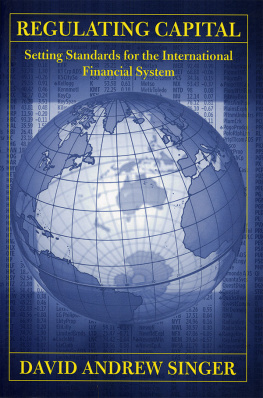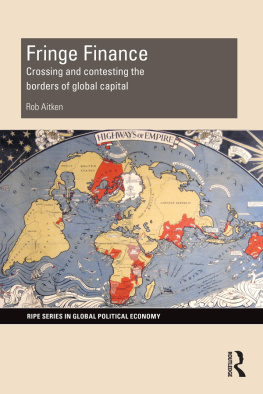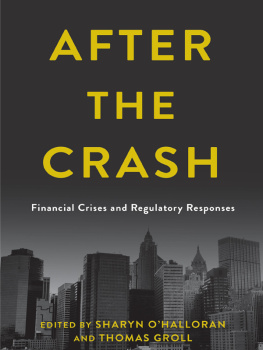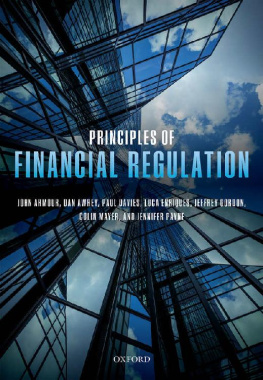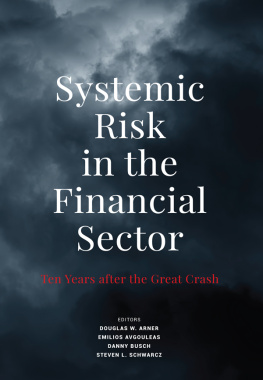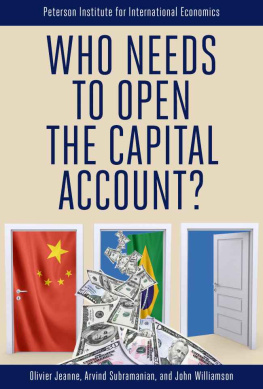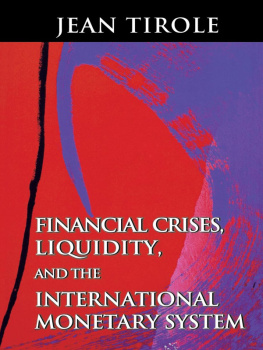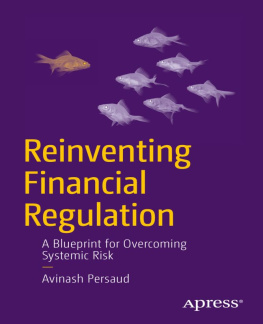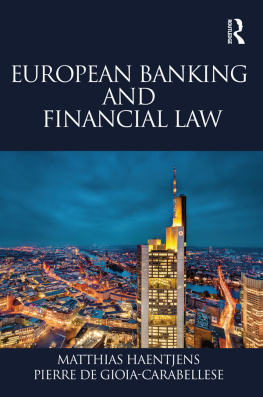Preface
This book reflects my substantive interests in global financial stability and my theoretical interests in international cooperation. The increasing international integration of national economieswhat is commonly known as globalizationgenerates sobering concerns about the vulnerability of domestic markets to foreign shocks. Some scholars have suggested that there is a crisis in global capitalism, evidenced by the increased occurrence of speculative currency attacks, banking instability, and stock market volatility, and others have advanced far-reaching proposals to reform the global financial architecture to bolster financial stability. This book takes a dispassionate step back and analyzes the recent historical record of attempts by financial regulators to cooperate with one another in addressing the challenges of globalization. In some cases, regulators are strong proponents of an international standard that applies a common set of regulations across all countries. In other cases, regulators resist international cooperation and insist on maintaining domestic discretion in their regulatory choices. I find that financial regulators are driven not by international systemic concerns but rather by domestic constraints and the threat of legislative intervention in their activities and mandates. Indeed, financial regulators are reluctant diplomats. With their domestic constituencies and territorially bounded jurisdictions, they are generally hesitant to assert themselves as international actors. Regulators penchant for international standard-setting emerges only when they are unable to fulfill their domestic mandates with unilateral regulation.
The arguments in this book contribute to ongoing research projects in political science, economics, and public policy. Substantively, the book is a study of the patterns of regulation in the banking, securities, and insurance industries, which constitute the pillars of the global economy. Its historical narratives should generate new directions for research on the viability of global standards and the governance of the global economy. Scholars who advocate international cooperation in response to the specter of global financial instability may benefit from considering the variegated experiences of the regulators chronicled in this book. Analytically, the book challenges the conventional focus on statesand sometimes on legislaturesas the sole actors in international relations. Financial regulators have emerged, albeit reluctantly, as important actors on the world stage. Their activities may seem apolitical at first glance, but it would be unwise to assume that they are insulated from political pressures. The analytical framework presented here illuminates the political incentives that regulators have to go it alone at the domestic level or to cooperate with their foreign counterparts.
This book is the culmination of several years of research beginning in the Department of Government at Harvard University. I was blessed from the start with an exceptional group of advisers: Lisa Martin, Jeff Frieden, and Devesh Kapur. I offer my sincere thanks to all three, as well as my apologies if this book does not do justice to the quality of their collective input. Lisa Martin kept me on track during my research and provided crucial guidance and criticism on my research design and theoretical arguments. She was both insightful and patient as she read successive drafts of the book and always filled the margins with questions, suggestions, and challenges. I am convinced that no one provides better feedback than Lisa, and I can only hope to avail myself of her sharp eye in the future. Jeff Frieden was a tough critic and challenged me to clarify my theoretical contributions and to impose a more transparent organizational structure in my empirical analyses. More important, Jeff taught me about international monetary and financial relations and gave me an appreciation for the affinities between economics and political science. He has had, and no doubt will continue to have, the strongest intellectual influence on my research and pedagogy. Finally, Devesh Kapur was a constant source of inspiration and made sure that my research stayed focused on real-world concerns. During our frequent conversations, he was always brimming with new ideas, and he encouraged me to expand my gaze beyond the narrow confines of the existing political science literature. He also looked after my personal well-being and kept me motivated during the darker periods of my research. I feel fortunate to have worked with him and even more fortunate now to call him a collaborator and friend.
I have many friends and colleagues to thank for their contributions to this project. As any writer knows, it takes a village to make a book. I offer special thanks to Ethan Bueno de Mesquita and Mark Copelovitch for providing comments and feedback at various stages of my research. Ethan was especially helpful in challenging me to think more rigorously about my theoretical arguments. I also thank Kim Olson, formerly of the New York Federal Reserve, for valuable feedback on the banking chapter, and especially for challenging my assessments of the Basel II agreement. Robert Gibbons, of the International Insurance Foundation, read the insurance chapter and provided an insightful reaction. For helpful guidance, feedback, criticism, and support, I thank Gabe Aguilera, David Bach, Bear Braumoeller, Lawrence Broz, Dan Carpenter, Fotini Christia, Warren Coats, Ben Deufel, James Fowler, Dan Gingerich, Dan Ho, Layna Mosley, Joseph Sanberg, Allan Stam, Matt Stephenson, participants of the Weatherhead Center graduate student lunch and the Harvard Government Department Political Economy seminar, and my friends at Quincy House. I also thank the participants of the 2005 PROGRES seminar in Geneva for teaching me about international insurance regulation.
This book was completed at the University of Notre Dame and the Massachusetts Institute of Technology. Notre Dame was a delightfully congenial place to draft the final chapters. I offer my thanks to Alexandra Guisinger and David Nickerson for their support during my two years there and my appreciation to Keir Lieber and Dan Lindley for their guidance during the initial stages of the review process. I gratefully acknowledge the research assistance of Jon Bischof. I also thank my new colleagues at MIT for welcoming me (a month early) to the faculty in June 2006.
The field research for this project was conducted in 2002 and 2005. I interviewed nearly forty current and former regulators and industry executives in Basel, Boston, Geneva, London, New York, and Washington, D.C. I agreed to respect their anonymity, but I offer them my thanks for their candor and insight. Administrators at the Bank of England, the U.K. Financial Services Authority, and the Bank for International Settlements were helpful in arranging meetings during my visits in the summer of 2002. Betsy Roberts, of the Financial Stability Institute at the BIS, was especially generous with her time during my visit and read the penultimate draft of the banking chapter nearly four years later.
For financial support during the various stages of this project, I thank Harvards Weatherhead Center for International Affairs, Center for European Studies, and Center for American Political Studies; and Notre Dames Institute for Scholarship in the Liberal Arts.
It was a delight to work with Roger Haydon of Cornell University Press. I thank Roger for his efficiency during the review process and for his own counsel about the manuscript. I also thank Eric Helleiner and an anonymous reviewer for detailed and insightful comments on the entire manuscript, which have improved the book in countless ways.

